Termites are a common problem for homeowners, causing damage to wood structures and furniture. Finding the right solution to eradicate termites is essential to protect your home and prevent further damage. One option homeowners may consider is using pesticides to kill termite populations. But do pesticides effectively eliminate termites, and are they a viable solution for treating and preventing infestations?
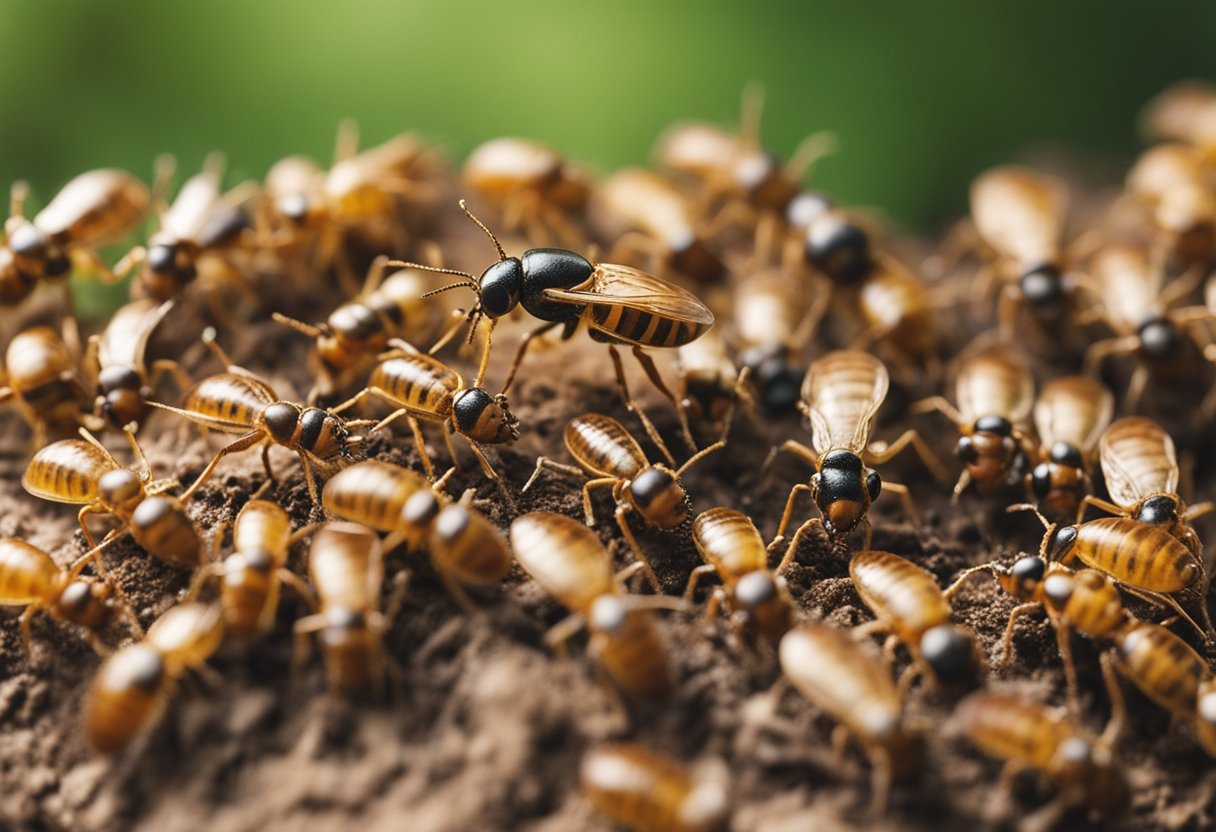
Various types of pesticides are available in the market, each with different levels of effectiveness against termites. Some pesticides can effectively kill termites, while others may only provide temporary relief. It is crucial to understand the type of termite infestation, the extent of the problem, and the appropriate pesticide for successful termite control. In addition, taking preventive measures and seeking professional pest control services when necessary are important steps in maintaining a termite-free home.
Key Takeaways
- Pesticides can kill termites, but effectiveness varies
- Understanding the type of infestation is crucial for proper treatment
- Prevention and professional services are key components of termite control
Can Pesticides Kill Termites
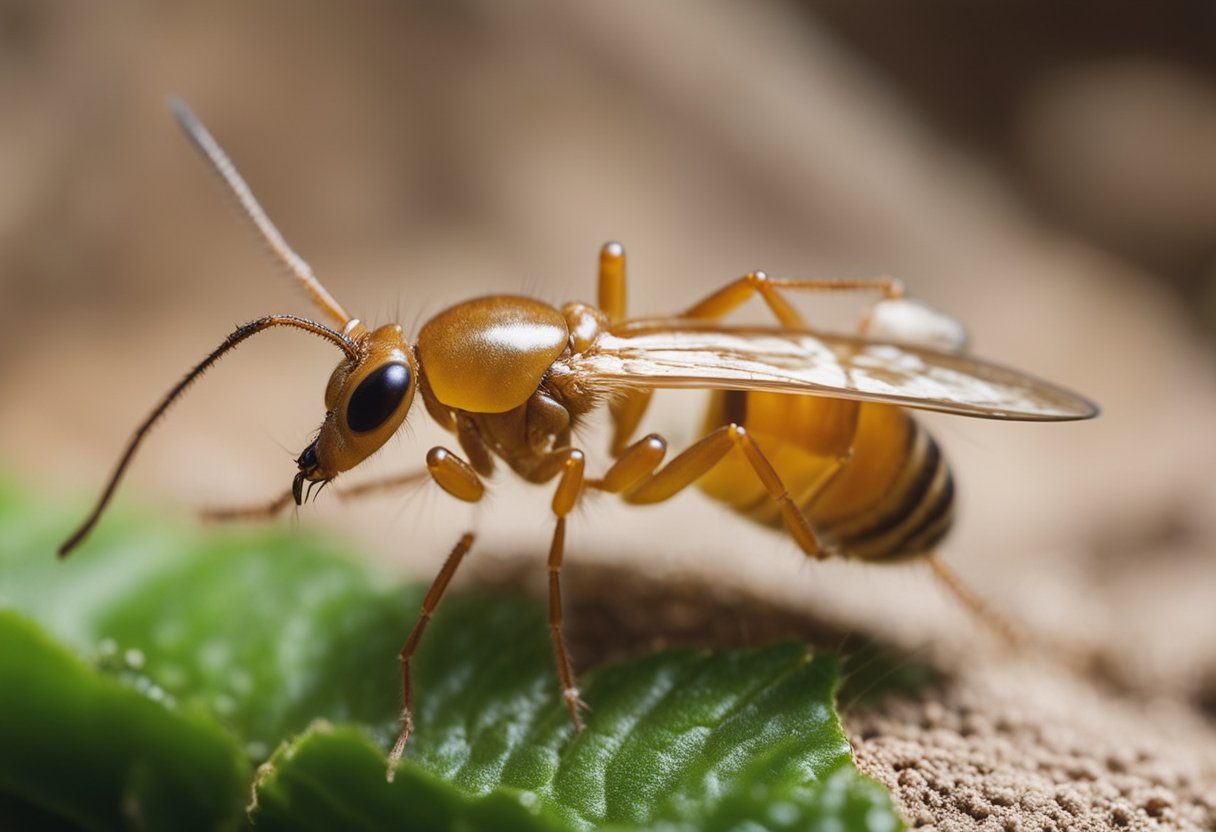
When dealing with a termite infestation, you might wonder if pesticides can effectively kill termites. The answer is yes; certain pesticides, known as termiticides, are specifically designed to target and eliminate termites. These termiticides can be broadly classified as insecticides, which are toxic chemicals used for controlling, repelling, or killing various insects.
There are two main types of termiticides that you can use to combat termites in your home or property: repellent and non-repellent. Repellent termiticides create a barrier around your property, deterring termites from entering the area. While effective, these pesticides require precise application to ensure no gaps are left for termites to pass through.
Non-repellent termiticides, on the other hand, do not deter termites but instead kill them upon contact or ingestion. This makes them ideal for treating infestations as termites cannot detect the pesticide and unknowingly share it with their colony, leading to a significant reduction in termite populations.
When choosing a pesticide to kill termites, it’s essential to consider factors such as:
- Effectiveness: Ensure the pesticide has a proven track record in successfully eliminating termites.
- Safety: Opt for pesticides with low toxicity to humans and pets, and follow the instructions for proper application and handling.
- Environmental impact: Some termiticides can be harmful to plants, water sources, or other organisms. Choose eco-friendly options where possible.
In conclusion, pesticides can effectively kill termites when used correctly. Whether you select a repellent or non-repellent termiticide, it’s crucial to select a product that meets your requirements and adhere to safety and environmental guidelines during its application. Remember, consulting a professional exterminator is always the best option if you’re unsure of how to tackle the termite infestation on your own.
Identifying a Termite Infestation
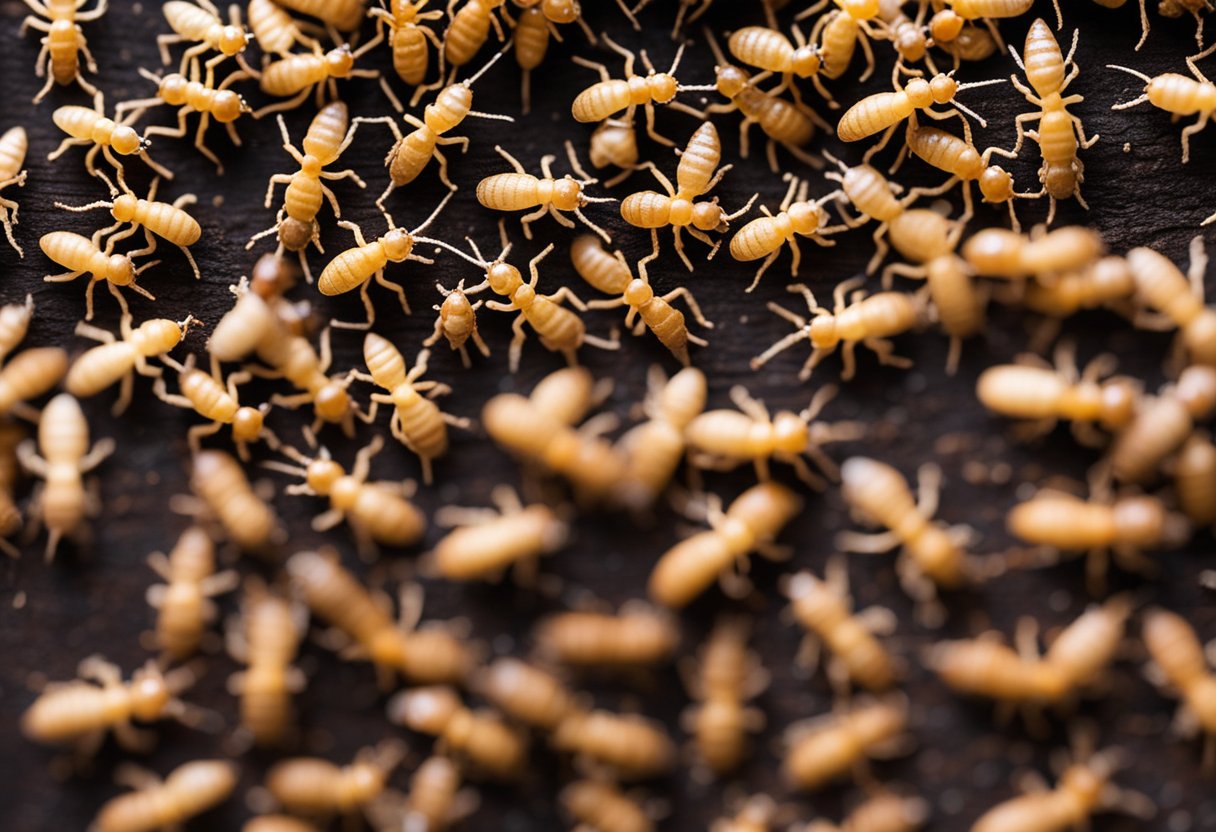
When dealing with termites, early detection is crucial to prevent extensive damage to your property. To identify a termite infestation, you should be aware of the following signs:
Discarded wings: Reproductive termites, also known as swarmers, shed their wings after finding a mate. These wings can often be found near windows, doors, or other entry points.
Mud tubes: Subterranean termites build mud tubes to protect themselves from predators and maintain a moist environment. You may find these tubes on the soil, foundation walls, or wooden structures around your property.
Damaged wood: Termites primarily feed on cellulose found in wood. They create tunnels as they consume wood, which may appear as honeycomb patterns or small holes in the structure. Tap on the wood with a screwdriver, and if it sounds hollow, it may have been infested by termites.
Frass: Drywood termites produce wood-colored droppings known as frass, which they push out of their tunnels. If you notice small, pellet-like piles of frass near wooden structures, it’s likely you have a termite infestation.
Dampwood termites typically infest wood with high moisture content. Check for decaying or water-damaged wood in your property, as these areas can attract dampwood termites.
Regular inspections for these signs can help you detect termite infestations early and take appropriate action to protect your property from further damage. Be vigilant, as termites can cause significant harm if left unchecked.
Home Prevention and Treatment Methods
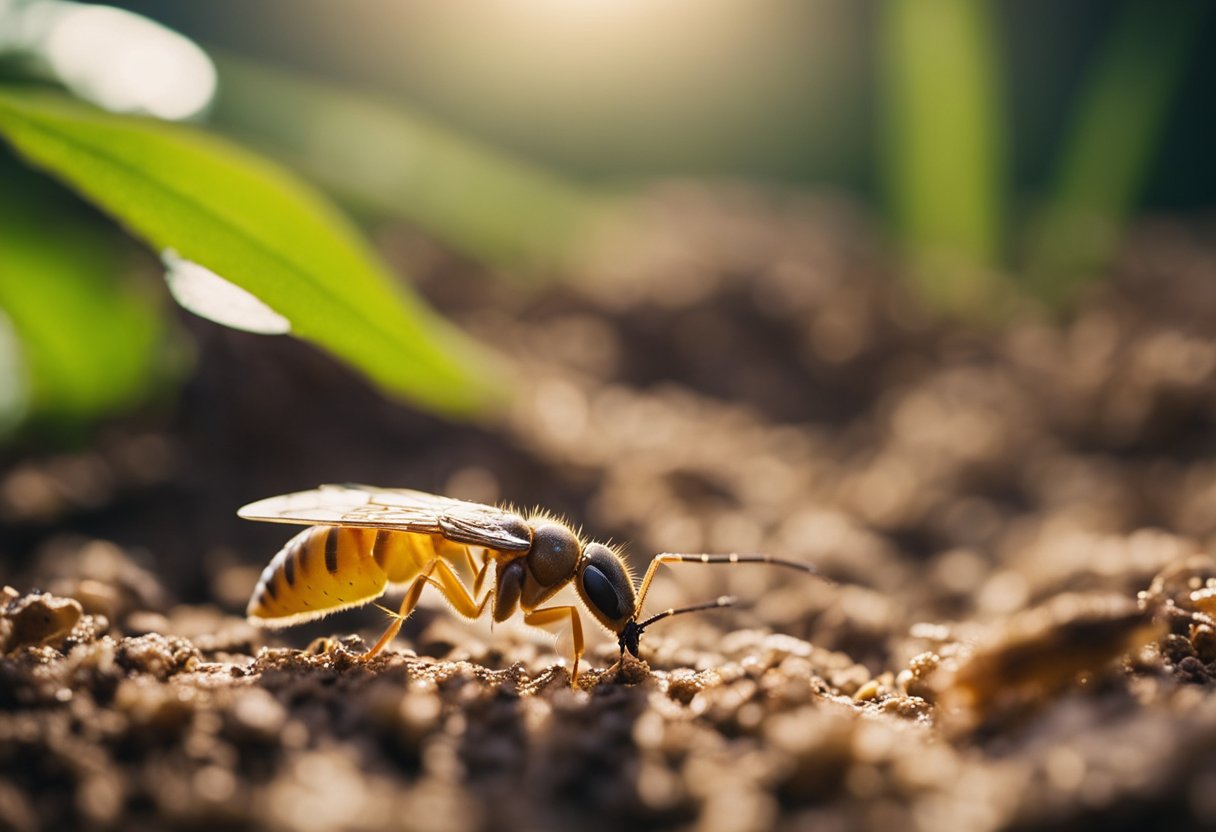
To prevent termites from entering your home, start by examining the foundation. Look for any cracks or crevices that could serve as entry points and seal them up. Maintain a clear perimeter around your house by keeping plants, mulch, and wood piles away from the walls. This prevents termites from reaching the foundation and reduces the risk of infestation.
There are several termite control options you can try. Consider using liquid treatments, which serve as a poison barrier in the soil surrounding your home. By applying a liquid treatment around the perimeter of your house, you can create a barrier that termites cannot cross without being exposed to the poison.
Another effective termite treatment method involves using bait stations. Place these around your property’s perimeter, and the termites will be attracted to the bait. The bait contains slow-acting poison, allowing the termites to bring it back to their colony. This method helps weaken and ultimately eliminate the entire colony.
When dealing with an active termite infestation, professional termite treatment might be necessary to get rid of the termites effectively. Experts in termite control can assess the situation in your home and determine the best course of action to eliminate the infestation. They have access to advanced treatment methods and chemicals that you may not have.
Remember, the key is to prevent termites from entering your home in the first place. Regularly inspect your home for signs of termites, maintain a clear perimeter, and utilize appropriate treatment methods. By doing so, you can effectively protect your home from termites and the costly damage they can cause.
Professional Pest Control Services
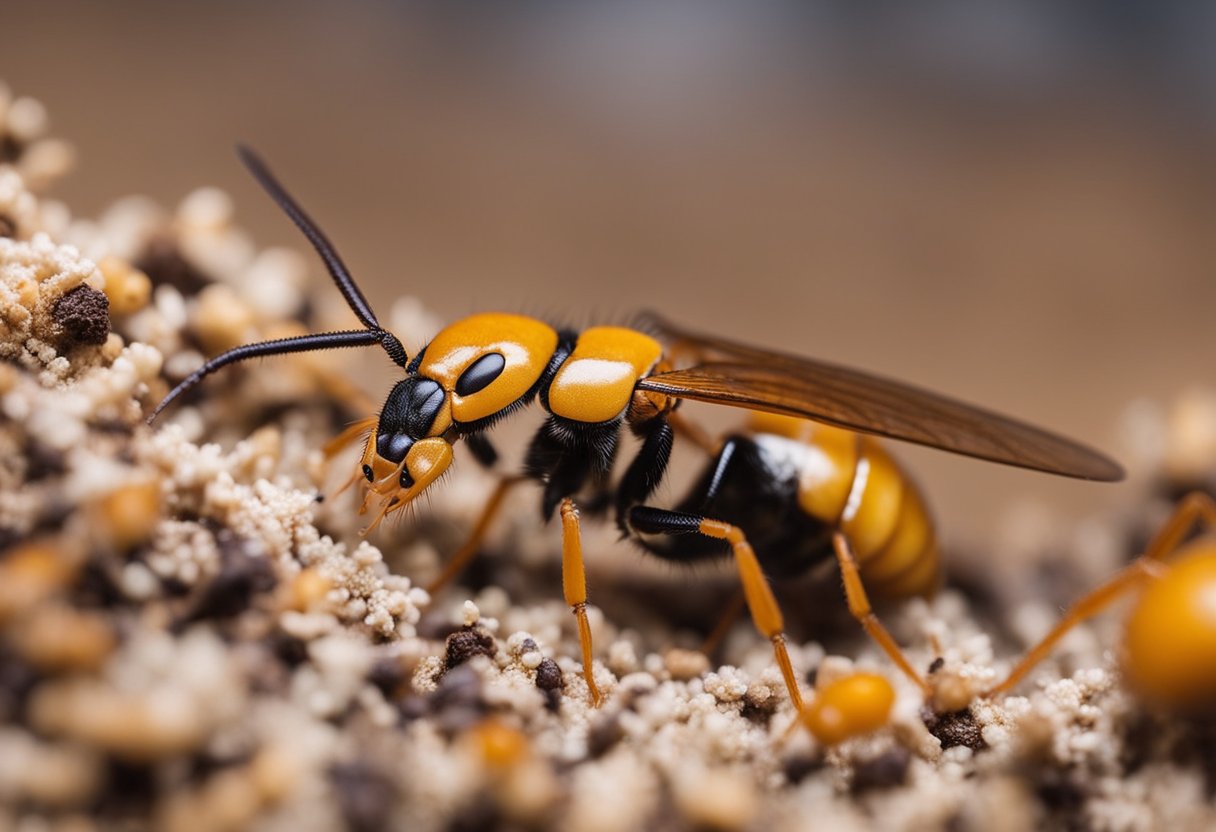
When dealing with termites, you might consider turning to professional pest control services for a thorough and efficient solution. Professionals in this field have the experience, knowledge, and proper equipment to identify and eradicate termite infestations.
One reputable pest control company is Orkin. They utilize scientifically-proven methods to combat termites and offer customized plans to suit your specific needs. Their trained technicians can effectively apply Termidor foam, a powerful tool in termite extermination. Termidor provides long-lasting protection and can reach even the most hard-to-access areas where termites may hide.
Another option is Taurus SC, a non-repellent insecticide known for its long-lasting effects and high efficacy in controlling termites. Professionals might choose to use Taurus SC as part of an integrated pest management strategy. It works by killing termites upon contact or ingestion, effectively controlling infestations within your home.
Spectracide Terminate is yet another option that professionals may employ for termite extermination. It contains a slow-acting insect growth regulator that gradually kills termites by preventing their normal development. While this method may take more time to fully eliminate the infestation, it can be an effective option in certain cases.
In conclusion, professional pest control services are a valuable asset when it comes to addressing termite problems. Utilizing expert knowledge and specialized products like Termidor foam, Taurus SC, and Spectracide Terminate, these professionals can provide long-lasting protection for your home. Trusting your termite concerns to the experts ensures the efficiency and safety of the extermination process.

